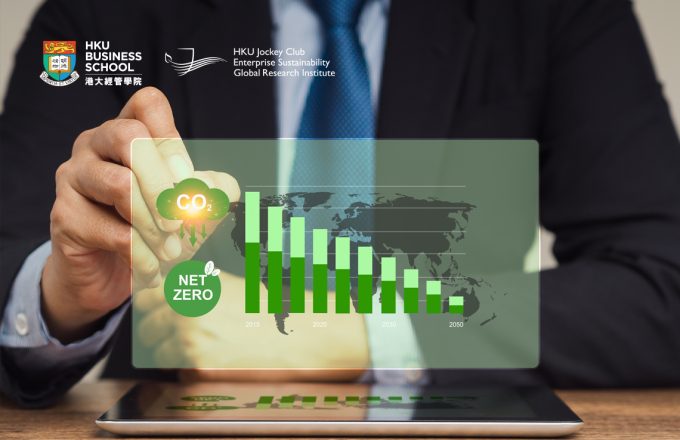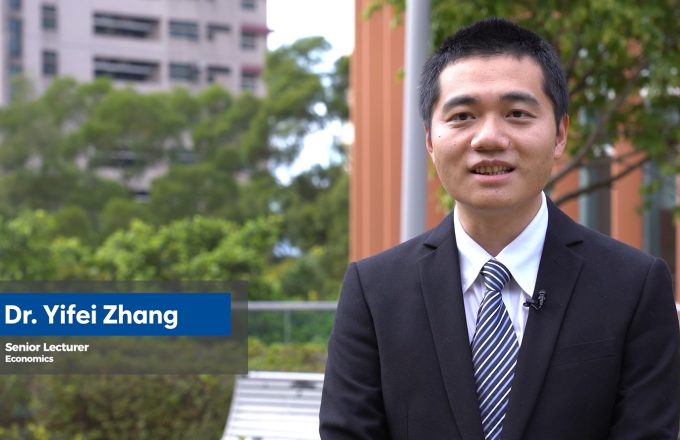Latest Research Publications
Research Insights
Global Scholars
Impact Stories
HKEJ Column
FT Chinese Column
In the Media
With in-feed advertising becoming an increasingly popular advertising tool for advertisers to reach mobile consumers, the authors propose an integrated model of contemporaneous, carryover, and spillover effects to measure the incremental contributions of in-feed ads in multiple types of mobile apps: newsfeed, social, and video. They empirically examine the three proposed effects of newsfeed ads, social feed ads, and video feed ads using data from a large-scale ad campaign for a new mobile game. The data set contains 10,115,801 impressions, 286,506 clicks, and 12,706 conversions. First, the findings show that social feed ads have the strongest contemporaneous effects on both ad clicks and conversions; social feed ads are 1.87 times more likely to generate a click and 1.69 times more likely to generate a conversion than newsfeed ads, followed by video feed ads (clicks: 1.73 times; conversions: 1.55 times). Second, video feed ads have the strongest carryover effect, followed by social feed ads, while newsfeed ads have a negative carryover effect. Third, newsfeed ads exhibit the strongest spillover effect; prior newsfeed ad exposures are more effective than prior social or video feed ad exposures at promoting clicks and conversions upon subsequent exposure in other channels.
January 2026
Journal of Marketing
Using a new database on global multinational production (MP), I document that world multinational enterprise (MNE) sales declined as sharply as trade during the Great Recession (2008–2009). This collapse was driven by MNEs from a few key headquarters countries and associated with steeper GDP declines in MP-intensive countries. MNEs amplified the trade collapse because their overall sales fell while they maintained higher trade intensity than domestic firms. In a calibrated quantitative model with flexible vertical and horizontal MNE structures, international trade, and input–output linkages, I show that productivity shocks, which disproportionately affected trade-intensive MNEs, contributed more to the trade collapse than demand shocks. MNEs’ productivity shocks accounted for over half of the global GDP decline during the Great Recession. MP linkages significantly amplified the transmission of headquarters-country productivity shocks to global GDP, MP, and trade.
January 2026
Journal of Monetary Economics
The mandatory switch from the incurred loss model to the more forward-looking current expected credit loss (CECL) model was originally scheduled to begin in 2020. However, when the COVID-19 pandemic started in early 2020, US regulators made the switch voluntary. Our study investigates how banks' exposure to the pandemic affects their decision to adopt CECL as well as adopting banks' pandemic-era pattern of loan loss provisions. First, consistent with pandemic-driven economic uncertainty reducing banks' willingness to adopt the new model, we find a negative association between banks' pandemic exposure and their CECL adoption. This association is more pronounced for banks with more lending opportunities, more lending competition, and worse loan quality. Second, compared with non-adopters, CECL adopters report more loan loss provisions during the pandemic's early period, and less or even negative loan loss provisions during the late period. The latter scenario reflects a reversal of earlier loan loss reserves and is more pronounced for banks with more exposure to states with a higher level of vaccination, consistent with banks having a more positive economic outlook because of improving pandemic conditions. Overall, our study offers useful insights into the adoption and implementation of accounting standards during periods of economic uncertainty.
Winter 2025
Contemporary Accounting Research
Key Takeaways Net-zero portfolios (NZPs), managing over $130 trillion USD in assets, align financial performance with climate goals. These portfolios reward firms that actively reduce emissions while excluding those lagging behind, driving market incentives for decarbonization.
The study introduces distance to exit (DTE), a forward-looking metric that measures a firm’s risk of exclusion from NZPs based on its carbon footprint and decarbonization efforts.
Firms with higher DTEs—seen as safer from exclusion—tend to have higher valuations but lower expected returns, highlighting the market’s pricing of carbon-transition risks.
DTE serves as both a risk measure and a catalyst for action, incentivizing firms to accelerate decarbonization to remain in NZPs, while enabling portfolios to achieve up to 95% reductions in carbon intensity without sacrificing sector diversification. Source Publication:
10 Jan 2025
Research
Key Takeaways The agricultural export value of Brazil has quadrupled over the last two decades due to rising global demand.
Brazil’s agricultural export boom drives deforestation: between 1997 and 2019, trade-induced agricultural expansion led to the loss of 3.6 million hectares of forest.
Trade-induced deforestation causes severe health consequences: it results in over 700,000 premature deaths, primarily from cardio-respiratory diseases linked to pollution from deforestation in upwind areas.
The economic cost of these deaths is estimated at $513 billion USD—about 18% of Brazil’s total agricultural export value during the same period.
These findings highlight the negative health impacts of trade-induced deforestation and the resulting regional inequality, because mortality costs and economic benefits are not always shared by the same populations. Source Publication:
8 Jan 2025
Research
Key Takeaways This study develops a theoretical framework to explore how carbon taxes and financial market tools (e.g., sustainability-linked loans and bonds) interact in reducing carbon emissions.
Carbon taxes remain the most effective tool for achieving emission reductions and increasing welfare but are often politically constrained.
Carbon-contingent financing provides an alternative incentive for standard agents to adopt green technologies, but its effectiveness depends on the financial resources of environmentally motivated agents who are funding the transition.
Although carbon taxes and market-based solutions can coexist, carbon-contingent financing may undermine political support for taxes, potentially reducing their overall effectiveness in addressing emissions.
The model’s predictions emphasize the need for a balanced climate strategy, whereby carbon taxes and financial market solutions complement each other by targeting different regions or sectors with distinct characteristics. Source Publication:
5 Jan 2025
Research
While computer languages may sound alien to economics, I aim to showcase that good programming skills are conducive not limited to economic research, it can also open up endless career possibilities for you in the business world.
31 Jan 2022
Economics
As a teacher, I will push myself to understand the expectations of local employers' and the market dynamics of Hong Kong.
18 Jan 2022
Finance
As a science person, I am impressed by our students' strong business acumen. But as a teacher, other than teaching them how to use quantitative tools to make scientific claims, I also hope that I can encourage them to continue to stay inquisitive about the world and apply their classroom knowledge for the betterment of the society.
5 Jan 2022
Marketing
Last week, I conducted an in-depth analysis of the structural contradictions facing Hong Kong’s electric-vehicle charging market: land resources are extremely scarce and power capacity is limited; relying on an extensive growth model that simply “piles up hardware” is clearly unwise.
21 Jan 2026
Faculty
Electric-vehicle charging technology is currently in a phase of rapid iteration. Early AC slow-charging solutions have entered the phase of being phased out, while DC fast-charging standards have become basic entry-level configurations.
14 Jan 2026
Faculty
Artificial intelligence technologies, represented by generative AI and machine learning, are reshaping industries with unprecedented speed and potential. Reports indicate that AI is expected to boost productivity by 33% and redefine the global competitive landscape and economic growth .
7 Jan 2026
Faculty
Large language models are increasingly permeating core domains such as knowledge production, business analysis, legal consulting, and medical decision-making. A problem that was once often regarded as a mere technical flaw is rapidly becoming a new focal point in the global technology race: the “hallucination” of large language models—namely, the tendency of a model, when lacking any factual basis, to still produce highly “confident,” fluent, yet false answers.
22 Jan 2026
When used appropriately, generative AI can significantly enhance human productivity. It can help teams explore strategies, draft marketing plans, and greatly expand the breadth and speed of individual output.
8 Jan 2026
As global technology conglomerates project an unprecedented $390 billion expenditure on Artificial Intelligence infrastructure in 2025, the discourse surrounding a potential "AI bubble" has intensified. Does the current lag in immediate commercial returns signify a market failure, or is there a deeper economic logic at play?
25 Dec 2025
“The Future of Hong Kong Economy Conference 2026”, organised by HKU Business School and co-organised by the Hong Kong Institute of Economics and Business Strategy, concluded yesterday. The conference gathered esteemed scholars, policymakers and industry leaders to engage in dynamic discussions on the future of the global economy, opportunities in AI Innovation, the New Silk Road for Chinese Enterprises to expand globally, Hong Kong’s positioning in global financial innovation, and entrepreneurship and leadership.
22 Jan 2026
Faculty
Large language models are increasingly permeating core domains such as knowledge production, business analysis, legal consulting, and medical decision-making. A problem that was once often regarded as a mere technical flaw is rapidly becoming a new focal point in the global technology race: the “hallucination” of large language models—namely, the tendency of a model, when lacking any factual basis, to still produce highly “confident,” fluent, yet false answers.
22 Jan 2026
Last week, I conducted an in-depth analysis of the structural contradictions facing Hong Kong’s electric-vehicle charging market: land resources are extremely scarce and power capacity is limited; relying on an extensive growth model that simply “piles up hardware” is clearly unwise.
21 Jan 2026
Faculty






























